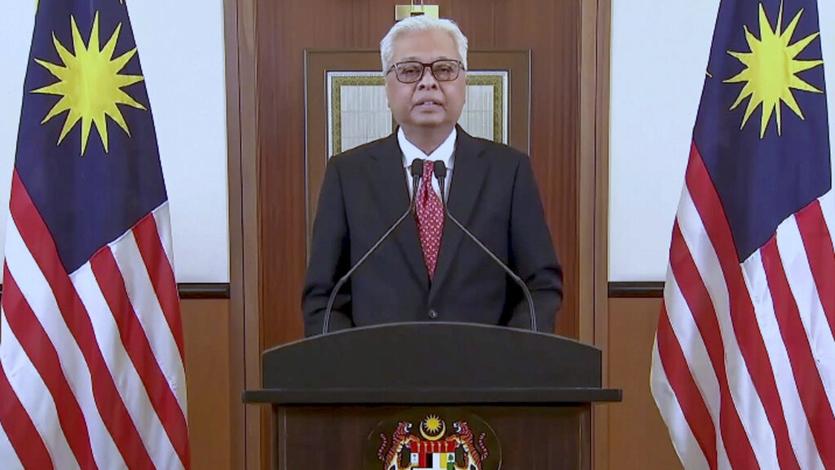 In this file image grab taken from video, Malaysian Prime Minister Ismail Sabri Yaakob remotely addresses the 76th session of the United Nations General Assembly in a pre-recorded message, at the UN headquarters on Sept 25, 2021. (PHOTO / UN WEB TV VIA AP)
In this file image grab taken from video, Malaysian Prime Minister Ismail Sabri Yaakob remotely addresses the 76th session of the United Nations General Assembly in a pre-recorded message, at the UN headquarters on Sept 25, 2021. (PHOTO / UN WEB TV VIA AP)
KUALA LUMPUR - China and the Association of Southeast Asian Nations could cooperate to strengthen a sustainable, multilateral world order, Malaysian Prime Minister Ismail Sabri Yaakob said here on Monday.
Speaking at the ASEAN-China Special Summit to Commemorate the 30th Anniversary of ASEAN-China Dialogue Relations held virtually, Ismail Sabri said the two sides could work together towards strengthening multilateralism and breathing new life into international organizations such as the United Nations (UN).
Malaysian Prime Minister Ismail Sabri Yaakob also hailed the move to begin the special relationship between the bloc and China in 1991, a wise decision which he said has demonstrated that China is a steadfast and reliable partner with the relationship developing into a deep and broad one
"A world order based on multilateralism is vital. Such an order would enable sustainable and peaceful co-existence of civilizations that is rules-based, open, inclusive and transparent."
"Thus, ASEAN and China could work on boosting multilateralism, especially on reforming the United Nations, to ensure it remains effective and relevant amid evolving global dynamics," he said at the meeting.
The Special Summit was hosted by Haji Hassanal Bolkiah, the Sultan of Brunei, as his country is the chair to this year's ASEAN chairmanship.
ALSO READ: China, ASEAN in comprehensive strategic partnership, says Xi
Ismail Sabri also hailed the move to begin the special relationship between the bloc and China in 1991, a wise decision which he said has demonstrated that China is a steadfast and reliable partner with the relationship developing into a deep and broad one.
"Malaysia deeply appreciates China's role in furthering our dialogue relations and in supporting ASEAN Centrality and community-building efforts," he said.
Ismail Sabri thanked China for the support through the COVID-19 pandemic, especially on vaccines and other public health assistance, and for China's strong backing of Malaysia and ASEAN's capacity-building to face future health crises.
"Moving forward, ASEAN and China could enhance cooperation in public health and pharmaceutical capabilities through the sharing of technology, know-how and intellectual property. This would be helpful in upgrading ASEAN's public health systems, to ensure they are prepared to effectively deal with future health emergencies," he said.
He also noted that China is taking the lead in driving post-pandemic economic recovery, the Regional Comprehensive Economic Partnership (RCEP) and the upgrading of the China-ASEAN free trade agreement.
READ MORE: S'pore, Philippine leaders hail upgrading of ASEAN-China ties
"Socio-economic recovery is a top priority as we move towards a post-pandemic stage. Towards this end, ASEAN and China should consolidate cooperation in digital economy, transformation and infrastructure, as well as connectivity to ensure supply chains continue to expand and remain unimpeded," he said.
Ismail Sabri also conveyed his wishes for the upcoming 2022 Winter Olympics and Paralympic Games which will be held in Beijing, China from Feb 4 to 20 next year.
Established in 1967, ASEAN groups Brunei, Cambodia, Indonesia, Laos, Malaysia, Myanmar, the Philippines, Singapore, Thailand and Vietnam.


